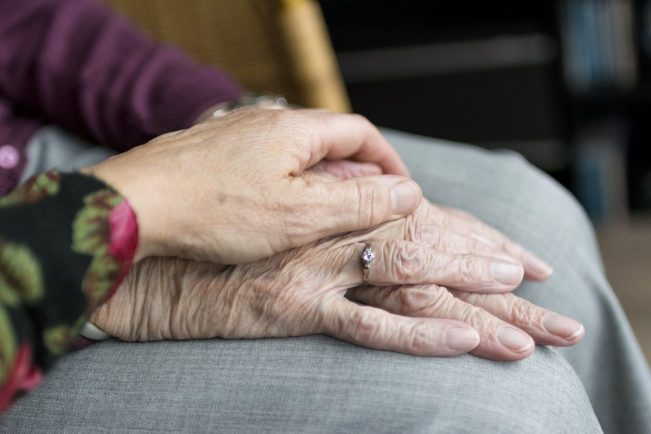Palliative care is a speciality of medicine that aims to enhance the quality of life for individuals with life-threatening illnesses. Regardless of the disease’s stage, it entails a multidisciplinary team working together to relieve the symptoms and stress brought on by the sickness. There are several myths about at home palliative care that can prevent people from using and accepting treatment. It is essential to debunk these misconceptions so that people and their families may make educated decisions about their healthcare and know what palliative care means.
This article will examine and dispel common myths about palliative care. It will provide factual information to better understand this critical facet of healthcare.
Myth 1: Palliative Care is Only for End-of-Life
A common misconception is that palliative care is only intended for those nearing the end of their lives. In reality, palliative care can be used at any stage of a severe illness, starting from diagnosis. It is not limited to situations at the end of life.
Palliative care should not imply abandoning curative measures. Instead, it supplements conventional medical care, offering more help in symptom management, meeting emotional and psychological needs, and enhancing general health. This holistic approach can be adopted early in a disease and incorporated into continuing therapeutic therapy.
Patients and their families can better comprehend palliative care once the misconception that it is exclusively for those nearing the end of their lives is dispelled. Palliative care supports patients throughout a severe disease, which can improve their quality of life.
Myth 2: Palliative Care Equals Giving Up Hope
A prevalent misperception is that opting for palliative care implies giving up on hope. It is essential to clarify that palliative care aims to change the focus rather than give up. Palliative care seeks to reduce suffering, control symptoms, and enhance the general quality of life for patients and their families.
Palliative care places a significant emphasis on hope—not always hope for a cure, but hope for meaningful moments, better health, and the capacity to treasure time spent with loved ones. When hope is reframed within the palliative care framework, people can see it as a crucial component of a supportive and caring medical approach.
Emphasising palliative care’s beneficial effects on the patient’s life is crucial to dispelling the idea that it equates to giving up hope. Palliative care improves quality of life by relieving symptoms, controlling pain, attending to emotional and spiritual needs, and promoting comfort and support.
Myth 3: Palliative Care is Only for Cancer Patients
The idea that palliative care is just intended for cancer patients is another common misconception. Expanding palliative care to include a broader range of critical conditions, such as heart failure, neurological disorders, chronic obstructive pulmonary disease (COPD), and others, is imperative.
Palliative care is not just for patients with certain illnesses. Regardless of the diagnosis, it is a wholesome process for anyone with a serious, life-limiting illness. Its supportive services can help more people by debunking the myth that palliative care is only for cancer patients.
One way to challenge palliative care myths is to understand how universally applicable it is. Palliative care can help people with a wide range of illnesses, not just cancer, by easing their discomfort, controlling their symptoms, and assisting them in navigating the challenges of a life-threatening disease.
Myth 4: Palliative Care is the Same as Hospice Care
One enduring misconception is the association between hospice and palliative care. Palliative care is not reserved for patients nearing the end of their lives, even though both aim to improve their quality of life. Making the distinction between the two enables people to see that palliative care can be incorporated early in sickness, irrespective of life expectancy.
Palliative care is appropriate for patients at any stage of a severe illness, unlike hospice care, which is usually for the last stages of life. By debunking the myth that palliative care is only for the terminally ill, more patients can take advantage of its benefits throughout their healthcare journey.
One last thing to clear up is the myth regarding the stringent requirements for receiving palliative care eligibility. In contrast to hospice care, which frequently has a six-month or shorter prognosis, palliative care can be given with curative therapies. This adaptability aids in dispelling the misconception that palliative care is solely beneficial for those with a terminal illness.
Myth 5: Palliative Care Hastens Death
There is a recurring concern that receiving palliative care hastens death. It is crucial to make clear that the goal of palliative care, particularly in the latter stages of life, is to offer comprehensive support, symptom control, and emotional care rather than to accelerate death.
Enhancing comfort and overall quality of life are the main goals of palliative care, especially for people with severe, life-limiting illnesses. Palliative care seeks to make the last stages of life dignified and peaceful by relieving pain, controlling symptoms, and caring for emotional and spiritual needs.
Denouncing the fallacy that palliative care expedites the dying process entails reaffirming its primary objective: delivering compassionate care, easing pain, and promoting comfort. Families who emphasise palliative care’s emphasis on improving the patient’s journey might approach the practice with better knowledge and less fear of hastening death.
Myth 6: Palliative Care Is Solely Provided in Hospitals
Another common myth is that palliative care may only be found in medical facilities. On the contrary, palliative care provides individualised attention to patients in various settings, including homes, outpatient clinics, hospitals, and nursing homes.
Home-based palliative care is one crucial element that debunks the idea of exclusive hospital care. Emphasising that palliative care can be given in the convenience of one’s own home helps people comprehend their alternatives more thoroughly. This helps people feel more at ease and in charge, particularly those who would rather receive care at home.
It is crucial to highlight the flexibility in the provision of palliative care. The misconception that it can only be found in particular institutions may discourage people from looking for it. Palliative care can be flexible in many settings, enabling individuals to choose the care that best suits their requirements and preferences.
Conclusion
Dispelling the common myths around palliative care can enable patients and families to make informed decisions consistent with their needs, preferences, and values. Understanding palliative care’s various facets and benefits makes the process smoother and more individualised.
Consistent awareness and self-education are vital when it comes to palliative care. Families and patients must stay abreast with accurate information by talking to medical professionals or looking up authentic resources.
Such education and awareness can foster a broader cultural shift toward accepting and comprehending the complete nature of palliative care.











